Septic Tank Troubleshooting Complete Guide 2024
Septic Tank Troubleshooting Complete Guide 2024
In exploring the domain of septic tank troubleshooting, you may find yourself faced with a myriad of perplexing issues that demand your attention. From mysterious odors wafting up from drains to toilets that seem to have a mind of their own, the world below your home's surface can be a puzzling one. But fear not, for armed with the insights within the 'Septic Tank Troubleshooting Complete Guide 2024,' you'll be equipped to tackle these challenges head-on. So, before you throw in the towel, remember – the solution might just be a page away.
Septic Tank Functionality Explained
Septic Tank Functionality Explained
In a septic tank system, the first step towards effective wastewater treatment begins with the tank itself, where bacteria break down waste into three distinct layers: scum, effluent, and sludge, before dispersing the effluent into the drainfield for absorption by the soil.
As a homeowner relying on a septic tank, it's important to understand how this process works to guarantee proper function.
Bacteria in the tank play a significant role by digesting solid waste. This separation process results in three layers within the tank: scum (lighter materials like oils and fats), effluent (clear liquid), and sludge (heavier materials like human waste and food particles).
The digestion process relies on the balance of these layers to function efficiently. If these layers become unbalanced, it can lead to problems like slow drains, foul odors, or even backups into the house.
Proper septic tank function relies on maintaining this delicate balance. By understanding the basic principles of septic tank operation, you can better troubleshoot and prevent issues that could arise. This knowledge empowers you to take proactive steps in maintaining your septic system, ensuring it continues to effectively treat and dispose of wastewater.
Common Causes of System Failure
To prevent costly and hazardous septic system failures, it's essential to understand the factors that can contribute to these issues.
Consistent maintenance neglect is a significant culprit, as it often leads to unaddressed problems within the system.
Hazardous household chemicals can also disrupt the delicate balance of your septic system and lead to failures over time.
Consistent Maintenance Neglect
One of the most critical mistakes you can make as a septic system owner is neglecting regular maintenance, which can lead to a cascade of problems and ultimately, system failure. Septic systems require consistent attention to function properly and are highly sensitive to neglect.
Regular maintenance is vital to preventing system failure, which can result in costly repairs, environmental contamination, and health hazards. Regular pumping, typically every three to five years, and proper disposal of waste are essential maintenance tasks. Inspecting for leaks, maintaining your drainfield, and proper water usage also play significant roles in maintaining your septic system.
Failure to perform these tasks can lead to sewer backups, slow drains, foul odors, and even collapse of your system. Be aware of warning signs such as gurgling sounds, slow drainage, and strong sewage smells. Addressing maintenance neglect promptly can help prevent system failure and ensure your septic system continues to function properly.
Hazardous Household Chemicals
en seemingly harmless products like bleach, drain cleaners, and solvents are poured down the drain, they can disrupt the delicate balance of bacteria in your septic tank. These chemicals can kill off the beneficial bacteria responsible for breaking down waste, leading to a buildup of solids and potential clogs in the system. Additionally, harsh chemicals can leach into the surrounding soil, contaminating groundwater and posing a threat to the environment and public health. To protect your septic system and the ecosystem, opt for eco-friendly cleaning products or consult with a professional on safe alternatives.
Warning Signs You Should Know
When troubleshooting your septic tank, recognizing the warning signs that indicate potential problems is crucial. As the homeowner, you need to be vigilant and address these issues quickly to prevent system failure and the exposure of hazardous waste to the environment.
Pay attention to: - foul smells near the tank, - slow drains in sinks and showers, and - gurgling sounds in plumbing fixtures.
These signals may indicate system overload, blockages, or bacterial imbalances.
Foul Smells Indicate Issues
Foul odors wafting from your septic tank area or inside your house are red flags that signal potential problems within your septic system. Don't ignore these pungent warnings, as they can indicate serious issues that require prompt attention.
For instance, strong sewer smells inside your house may suggest a backup or ventilation problem within the septic system. If you detect rotten egg-like odors near the drainfield, it could signal hydrogen sulfide gas production from anaerobic conditions.
On the other hand, odors resembling ammonia or musty scents may indicate a lack of oxygen in the tank, causing breakdown issues. Bacterial imbalances or leaks in the system can also produce foul odors around the septic tank area.
It's essential to address these issues promptly to prevent further septic system failures and potential health hazards. By recognizing and responding to these foul smells, you can take proactive steps to maintain your septic system's health and avoid costly repairs down the line.
Stay vigilant and take action at the first whiff of trouble.
Slow Drains Cause Concern
Septic Tank Troubleshooting Complete Guide 2024
As you monitor your septic system's performance, slow drains in sinks, showers, or tubs should grab your attention, as they can be a subtle yet significant warning sign of underlying issues. This common issue might seem innocuous at first, but ignoring it can lead to more serious and costly problems.
Build-up of sludge or clogs in the pipes can cause slow draining water. This may indicate a blockage in the drainage system or even a full septic tank. If not addressed promptly, these slow drains can develop into sewage backups, leading to environmental hazards and unpleasant odors in your home.
Taking quick action when you notice slow drains is essential to prevent further complications. By identifying and addressing the root cause early on, you can avoid expensive repairs and maintain the health of your septic system.
Regular maintenance and monitoring can prevent these minor issues from becoming major headaches.
Gurgling Sounds Trouble
Gurgling or bubbling noises emanating from your home's plumbing can signal arcane but critical issues within your septic system. These unusual sounds often indicate blockages or backups, which can lead to more severe problems if left unchecked.
When air becomes trapped in the pipes due to a clog or malfunction, it can cause the gurgling or bubbling noises you're hearing. It's vital to investigate these sounds promptly, as ignoring them can result in costly repairs and potential health hazards.
Don't delay in addressing these warning signs, as they can quickly escalate into more significant issues. If you're experiencing gurgling sounds, it's crucial to identify and repair the underlying cause. This may require professional assistance to diagnose and fix the problem.
A septic system expert can help you determine the source of the issue and provide the necessary repairs to get your system functioning properly again. By taking prompt action, you can prevent further damage and ensure your septic system operates efficiently and safely.
Crucial Maintenance Tasks
Regular upkeep of your septic system requires proactive measures, including routine inspections and pumping every three to five years. This will help prevent problems like sewage backups and odors.
During inspections, look for leaks, cracks, and blockages in the septic tank and pipes. Regular pumping removes accumulated solids and prevents them from entering the wastewater treatment system.
Your daily habits also play a significant role in maintaining a healthy septic tank. Managing solids by avoiding non-biodegradable items like paper towels and cleaners is essential.
Conserve water by fixing leaks and using water-efficient appliances. Spread out water usage; a sudden surge can overload the system. Keep hazardous materials like pesticides and paint thinners out of the system to prevent damage.
Troubleshooting Slow Drains
If you're experiencing slow drains in your sinks, showers, or toilets, it's time to investigate the underlying cause.
You'll need to identify whether the issue stems from clogged pipes or a more serious septic system problem, such as a full tank or drainfield issues.
Causes of Slow Drains
Causes of Slow Drains
Excessive water usage and blockages in the system can result in slow drains, which often serve as early warning signs that a significant issue is developing in your septic tank. Your septic system needs regular maintenance to function properly.
Clogs in the main line can also contribute to slow drains and other drainage issues. If you're experiencing slow drains, it's important to act promptly to prevent further damage.
Common causes include clogs, tree roots infiltrating pipes, and a full or damaged septic tank. These problems can lead to sewage backups and environmental hazards if left unaddressed. The frequency of pumping, water usage, and the type of waste flushed down the drains all impact your system's health.
Signs like gurgling sounds, slow draining sinks and toilets, and standing water near the drainfield indicate a problem. Similarly, bright green grass over the septic tank area can indicate a leak. By identifying these issues and addressing them early, you can save money and avoid more costly repairs.
Resolving Clogged Pipes
To effectively resolve clogged pipes, especially those in your septic system, you need to understand and tackle the root causes of slow drains to prevent further damage. Slow drains can be caused by the buildup of sludge, debris, or grease, which can lead to clogged pipes.
Some common signs of clogged pipes include water backing up in sinks or showers, foul odors, and gurgling noises in the plumbing.
To clear these clogs, you can try using a plumbing snake or auger. These tools can help dislodge and remove the blockage, restoring proper drainage.
Additionally, regular maintenance can prevent clogs and slow drains. This includes pumping your septic tank regularly and avoiding flushing non-biodegradable items.
Resolving Toilet Backups Quickly
Prompt diagnosis and treatment are crucial when toilet backups occur to avoid further complications and health hazards; typically, they're triggered by an overwhelmed septic tank unable to handle the volume of waste.
As a homeowner, you'll want to act quickly to resolve the issue. Start by checking for clogs in the system and addressing them promptly. This can help alleviate the problem and prevent further damage.
Regular maintenance of your septic system is vital to preventing future toilet backups. By ensuring your septic tank is functioning properly, you can avoid costly repairs and inconvenient disruptions.
Staying on top of maintenance is key to preventing issues from arising in the first place.
Effective Odor Treatment Methods
Using biological additives and targeted cleaning procedures, you can effectively eliminate septic tank odors that arise from imbalances in the microbiological system. Odors often indicate that the beneficial bacteria in your septic system aren't functioning at their best.
Adding specially formulated biological additives introduces billions of helpful bacteria, which can restore balance and break down organic matter efficiently. This process helps eliminate foul smells in your yard and home by ensuring proper digestion of solid waste.
Promptly addressing septic tank odors prevents bacterial colony decline and possible system failures. Left unchecked, these issues can lead to costly repairs, environmental contamination, and even health risks.
Leach Field Issues and Solutions
You're likely to encounter leach field issues if you've recently dealt with septic tank odors, as both problems often stem from an overloaded septic system. Signs of leach field problems, such as slow drains and wet patches on the lawn, indicate a need for immediate action to prevent further damage.
To address these issues effectively, consider the following:
Inspect the Leach Field: Conduct a visual inspection of the leach field area to look for any standing water or unusually lush grass, which could signal a problem with the drainage.
Reduce Water Usage: Limit excessive water usage by fixing leaks, spacing out laundry loads, and avoiding long showers to alleviate the strain on the septic system.
Schedule Regular Maintenance: Carry out routine inspections and pumping of your septic tank to prevent overloading and prolong the lifespan of your leach field.
Preventative Measures for Homeowners
To prevent costly septic system issues, homeowners must adhere to regular maintenance schedules and adopt proper waste disposal habits. Regular maintenance, including tank pumping every 3-5 years, is essential for preventing backups and system failures.
Proper waste disposal practices play a significant role in maintaining the septic system's functionality. Avoid flushing non-biodegradable items like wipes, hygiene products, and grease, as they can clog the system. Monitoring warning signs such as foul odors, slow drains, and gurgling sounds can help in early issue detection.
Using septic-safe products and water-saving fixtures can extend the septic system's lifespan and prevent potential failures. Being proactive in addressing warning signs and promptly seeking professional help can prevent costly repairs and environmental contamination.
Expert Maintenance and Repair Tips
Regularly scheduled septic tank maintenance by certified professionals is crucial for guaranteeing peak system performance and longevity. To keep your septic system in top shape, follow these expert maintenance and repair tips:
Regular Pumping: Make sure your septic tank is pumped every 3-5 years to prevent buildup and maintain proper functionality.
Mind What You Flush: Avoid flushing non-biodegradable items down the drain to prevent clogs and damage to your septic system.
Professional Assistance: Seek professional help for diagnosing and fixing any septic tank issues promptly to prevent further damage and ensure effective repairs.
Costs and Budgeting for Repairs
Seeking professional assistance and budgeting for repairs are key steps in managing the costs associated with maintaining a septic system. The average annual maintenance expenses typically range from $200 to $500.
Factors such as the extent of damage and the need for replacement parts can greatly influence septic system repair costs. It's important to compare maintenance costs with repair expenses to underscore the importance of regular upkeep.
By budgeting for septic system maintenance, costly repairs and system failures can often be prevented. Opting for cost-effective solutions like DIY maintenance and using septic-safe products can help reduce overall repair expenditures.
Being proactive in managing your septic system's maintenance and promptly addressing any issues can ultimately save you money in the long run. Remember, staying on top of repairs and budgeting appropriately are essential practices for ensuring the longevity and efficiency of your septic system.
Frequently Asked Questions
How Can I Prevent Tree Roots From Damaging My Septic System?
To prevent tree roots from damaging your septic system, install plastic pipes to block root intrusion. Use root growth inhibitors and map out pipe locations before planting trees. Regular maintenance and consideration of removing invasive trees are essential.
Are There Any DIY Methods to Unclog a Septic System?
You can use a sewer snake or auger to clear clogs in septic pipes. Enzyme-based products break down organic matter. Hot water or vinegar-baking soda mixtures dissolve grease. Regular tank pumping prevents clogs. Avoid chemical cleaners.
Can Heavy Rain or Flooding Affect My Septic Tank?
Yes, heavy rain or flooding can harm your septic tank. Excess water can overload the system, causing clogs, unbalancing bacteria, and damaging components. Monitor and prevent issues by ensuring proper drainage and avoiding overloading during wet conditions.
Is It Safe to Use Additives in My Septic Tank?
Using additives in your septic tank can disrupt bacterial balance, leading to issues. Chemical additives may harm waste breakdown. Opt for biological additives to maintain a healthy tank. Follow manufacturer guidelines to prevent damage.
What Should I Do if My Septic Alarm Goes Off?
When your septic alarm goes off, don't ignore it. Contact a professional immediately to diagnose and address the issue. Ignoring the alarm can lead to costly repairs and health hazards. Regular maintenance helps prevent problems.

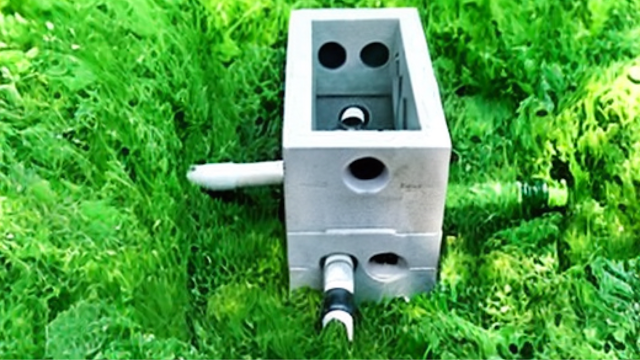

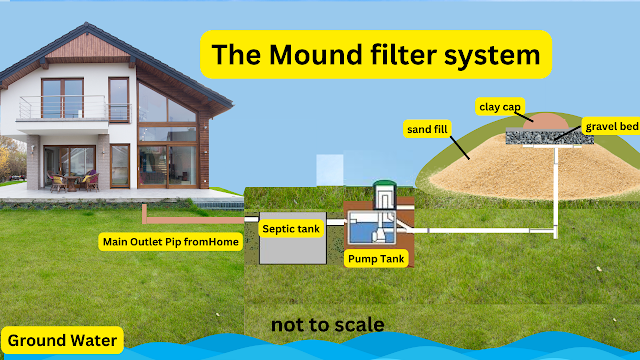
.png)

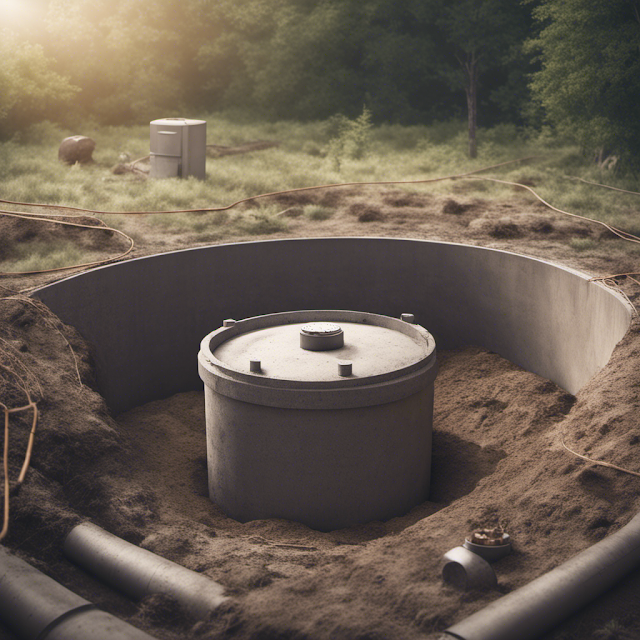
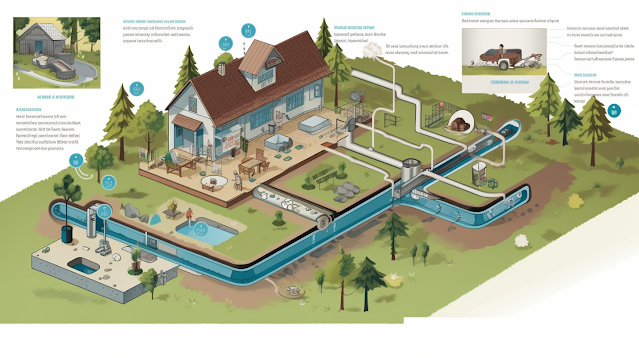
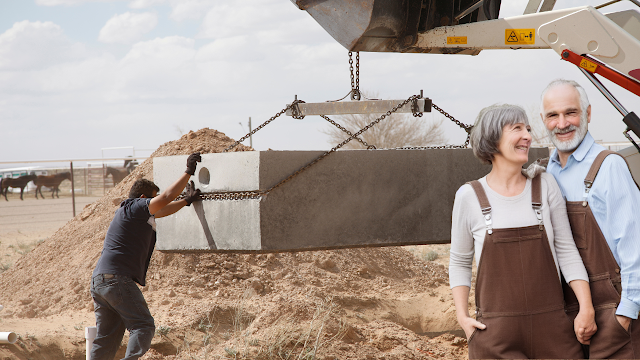


Comments
Post a Comment